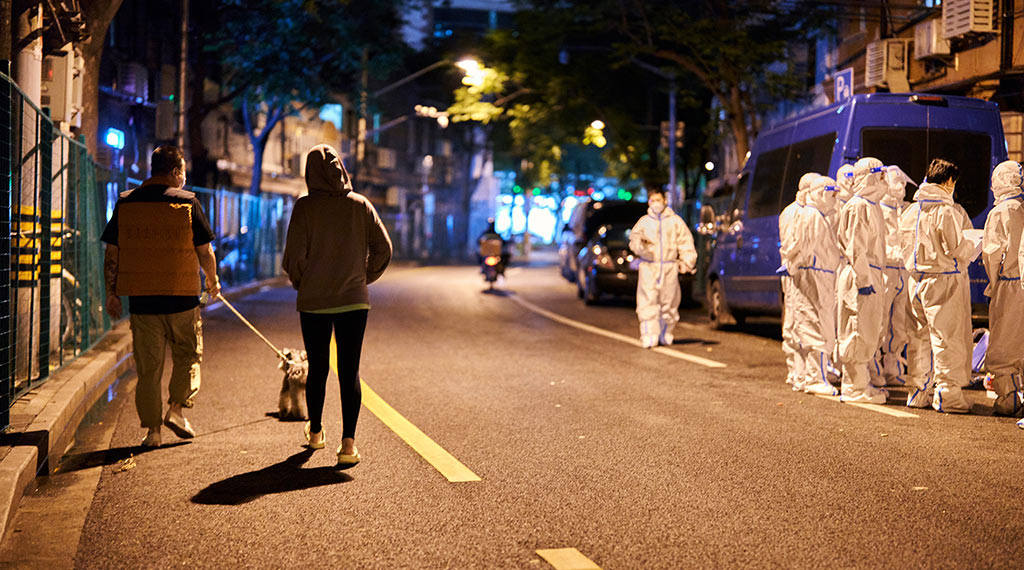
It may well have lit the fuse of a larger revolution that leads to freedom. Western governments can help the protesters.
Zero Covid” policy and the fire resulting in deaths in an apartment building in Urumqi have led to protests in Beijing, Chengdu, Chongqing, Nanjing, Shanghai, Wuhan, and many other cities in China. Protesters are calling for the Chinese Communist Party to end its rule and for Xi Jinping to terminate his as well. The demonstrations, which happened almost at the same time in countless cities and universities, are the first nationwide expressions of discontent and political demands that China has seen since the Tiananmen Square protests in 1989. The current protests are historical events that will have lasting implications for China, Xi, and the Chinese Communist Party. Protesters held blank sheets of paper as symbols of protest against pervasive censorship and what one of us, Jianli Yang, has termed the “every-moment-autocracy” of Xi’s rule. The protests have been dubbed the “blank-page revolution.” Here we consider seven of its major implications for China and the world.
First, the Chinese people have demanded freedom. They have demonstrated their contempt for the CCP and Xi’s rule. The strength with which they have pressed their demands might have surprised many in the West. In recent years, many people have bought into CCP propaganda, mistakenly believing that the Chinese people support the Communist Party and Xi. In January 2022, a spokesman for the Chinese foreign ministry smugly cited a poll that the Ashe Institute at Harvard’s Kennedy School has conducted for ten consecutive years. According to the spokesman, the poll shows that the Chinese government enjoys one of the world’s highest rankings in terms of citizens’ satisfaction with it: More than 90 percent of Chinese citizens are reported to be satisfied with it.
Given the CCP’s oppressive rule in China, such polls are not reliable, the protests providing ample evidence that they’re grossly inaccurate. The Chinese people, supremely dissatisfied with Xi and the rule of the CCP, have not given up their quest for freedom and democracy. Their will for political reform has not been extinguished. The protests against the zero-Covid policy were opportunities for people to take to the streets spontaneously and to unite in a spirit not dissimilar to that of the Tiananmen demonstrations. Such shows of courage will inspire more Chinese to do the same — to say openly what they have been suppressing in their hearts for years. Their words will resonate powerfully. Even if the protests and the accompanying political demands were quickly suppressed, they were like lightning bolts in the darkness of the night. Their momentary light has enabled us to see clearly what the Chinese people believe, to provide insights into the hearts and minds of the Chinese people, especially the young. The compatriots for the cause of freedom and democracy in China are many.
Second, the boldness of the blank-page revolution has reduced the fear that the Chinese people have of the CCP. There is an ancient Chinese saying, “They eye each other in the street,” meaning that the people show their feelings about the government only secretly. That traditional fear of the party is weakening. The protesters understood that they incurred great risks as the police presence, closed-circuit TV, omnipresent recognition software, and tracking techniques exposed them to the risk that they would be identified and punished. The boldness of the protesters in the face of so much intimidation is a testament to their heroism. They were likely heartened by their understanding that many Chinese citizens who could not protest nonetheless support them.
Third, there are major consequences for Xi and the CCP. The protests have affected China’s political ecosystem, causing great damage to the image that Xi seeks to advance of his rule and of China’s future under the CCP. To the world, Xi touts the superiority of China’s political system. The protests have led to the collapse of that narrative and underscore what has been evident since 1949: The Chinese regime is not legitimate. Also destroyed by the protests are Xi’s public diplomacy and the CCP’s soft-power effort to build a “common destiny for all mankind.” The world now sees that any future that the Chinese regime creates will be dystopian.
Fourth, the problems of Xi and the CCP are internal as well as external. The protests and their aftermath have the potential to result in yet more protests and to deepen existing rifts within the party leadership. It was widely believed that Xi at the 20th Party Congress in October secured the position of “president for life.” No doubt he is in charge of the CCP and his leadership is secure. Nonetheless, tensions within the leadership are significant, and Xi’s enemies will attempt to take advantage of any opportunity. Moreover, Li Keqiang, Wang Yang, Hu Chunhua, and others sidelined by Xi at the 20th Congress will remain in their government posts until next March. That ensures that Xi’s opponents within the leadership of the party will have a window of opportunity until then. Xi also faces opposition from Deng Xiaoping’s son and members of the late Jiang Zemin’s faction. While they are not sufficient to topple Xi, a coalition of the enemies within the party, coupled with subsequent protests and economic or international crises or setbacks for China, could pose a serious challenge to him. Though that possibility is remote, the stars could align to form an existential threat to his leadership.
- The US must end engagement (and Biden’s neo-Engagement) with the PRC now - April 10, 2024
- How to address the CCP threat: Engagement, defeatism, or victory - April 3, 2024
- Great challenges are ubiquitous but Americans can best them - March 26, 2024
